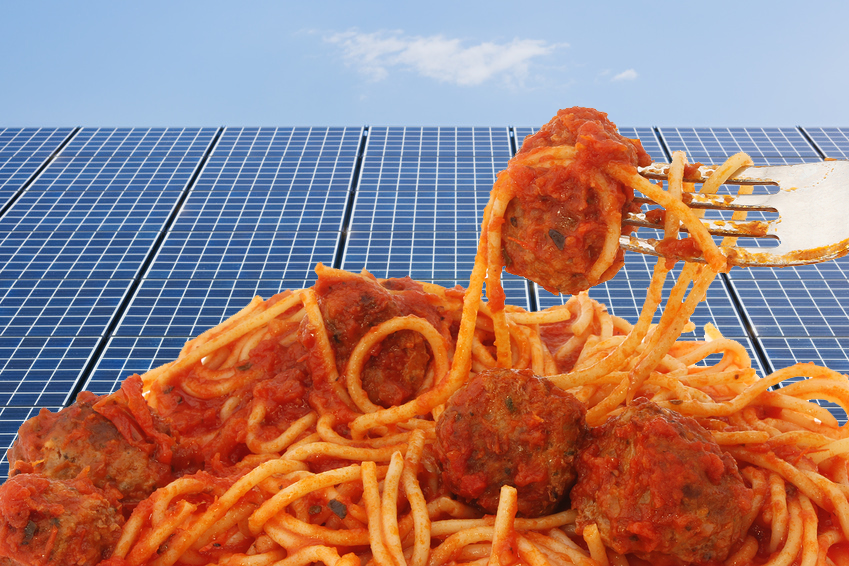Recent breakthroughs have seen battery storage at the forefront of renewable technology news. Glitzy, much-heralded pressers in the past month or so have delivered announcements that have shaken the energy sector, giving us a hint that living free of fossil fuels may be commercially viable in the not-too-distant future.
However with less fanfare, scientists from UCLA have been working at their own version of solar storage technology, one based on ancient technology (and meatballs) which may have an even more far reaching effect than battery storage.
In research published in Science, a team from UCLA has introduced technology that will allow solar cells to store energy for up to several weeks instead of a few microseconds at a time. Saying the breakthrough will change the way we think about solar cells, the UCLA team base their technology on the method used by those storage geniuses: plants.
Yes, plants…
According to Sarah Tolbert, a UCLA professor of chemistry and one of the senior authors of the research, plants use photosynthesis to store energy from the sun, one of the most efficient methods known to science.
It is the way the plants separate positive and negative charges that is the key.
“In photosynthesis, plants that are exposed to sunlight use carefully organized nanoscale structures within their cells to rapidly separate charges — pulling electrons away from the positively charged molecule that is left behind, and keeping positive and negative charges separated,” Tolbert said. “That separation is the key to making the process so efficient.”
Bearing this in mind, the UCLA team have been looking to develop a system using cheaper plastic solar cells rather than the current silicon that would keep the charged particles apart for weeks.
“Modern plastic solar cells don’t have well-defined structures like plants do because we never knew how to make them before,’ Tolbert said. “But this new system pulls charges apart and keeps them separated for days, or even weeks. Once you make the right structure, you can vastly improve the retention of energy.”
The UCLA press release describes the technology (helpfully it must be admitted) as “like a plate of cooked pasta”:
“The plastic materials, called organic photovoltaics, are typically organized like a plate of cooked pasta—a disorganized mass of long, skinny polymer “spaghetti” with random fullerene “meatballs.” But this arrangement makes it difficult to get current out of the cell because the electrons sometimes hop back to the polymer spaghetti and are lost.
The UCLA technology arranges the elements more neatly—like small bundles of uncooked spaghetti with precisely placed meatballs. Some fullerene meatballs are designed to sit inside the spaghetti bundles, but others are forced to stay on the outside. The fullerenes inside the structure take electrons from the polymers and toss them to the outside fullerene, which can effectively keep the electrons away from the polymer for weeks.”
How far away is this breakthrough from becoming commercially available? Not far, according to Yves Rubin, a UCLA professor of chemistry and another senior co-author of the study.
“We don’t have these materials in a real device yet; this is all in solution,” he said. “When we can put them together and make a closed circuit, then we will really be somewhere.”
So there you have it: meatball pasta technology to be the next Great Leap Forward in solar storage technology. All based on the storage methods used by plants for millions of years. Talk about back to the future?


 RSS - Posts
RSS - Posts



Absolutely brilliant. Once again Mother Nature did it first and best!
The spaghetti and meatball thing is interesting, too ~ always known for providing an energy-storage capacity around ones waistline. The only question remaining is do we stock the cellar with Syrah, Chianti, or just a rough old Claret?
….decisions, decisions…….
Tough job eh Jason? But someone’s got to do it! Thanks for your comment.